Samaaro + Your CRM: Zero Integration Fee for Annual Sign-Ups Until 30 June, 2025
- 00Days
- 00Hrs
- 00Min

Imagine this: 56% of events worldwide fail to meet their attendance targets, not because the event itself lacked value, but due to poor ticket sales and ineffective promotion. That gap between planning and actual turnout can make or break your event’s success.
In today’s hyper-competitive landscape, it’s no longer enough to just host a great event. You need a smart, strategic approach to driving event ticket sales, one that reaches the right audience, sparks genuine interest, and converts that buzz into registrations. This ultimate 2025 guide is your blueprint for doing exactly that.
Whether you’re launching your first event or scaling up your annual conference, this guide breaks down proven ticket selling strategies and sales techniques for events step-by-step. You’ll learn how to maximize attendee acquisition, optimize your marketing, and generate sustainable event revenue.
By the end, you’ll have a clear, actionable plan to boost your event’s visibility, sell out your tickets faster, and create memorable experiences that keep attendees coming back.
Ready to turn your event into a sold-out success story? Let’s dive in.
Before diving into ticket selling, setting a strong foundation is key. Your event’s success largely depends on how well you define its unique appeal and understand who you’re selling to. This groundwork will help you craft focused marketing messages and sales strategies that resonate.
First, clearly define your event’s Unique Value Proposition (UVP).
Your UVP should answer why someone can’t afford to miss your event. This core message will drive all your communications and attract the right audience.
Next, understanding your target audience in depth is crucial. Creating detailed attendee personas helps you pinpoint who they are, what interests them, and what challenges your event can solve. Consider their demographics, preferences, and especially their favored communication channels, be it email, social media, or others. Tailoring your messaging based on these insights increases your chances of capturing their attention and converting interest into ticket sales.
Finally, setting SMART goals for your ticket sales will keep your efforts on track. Your goals should be:
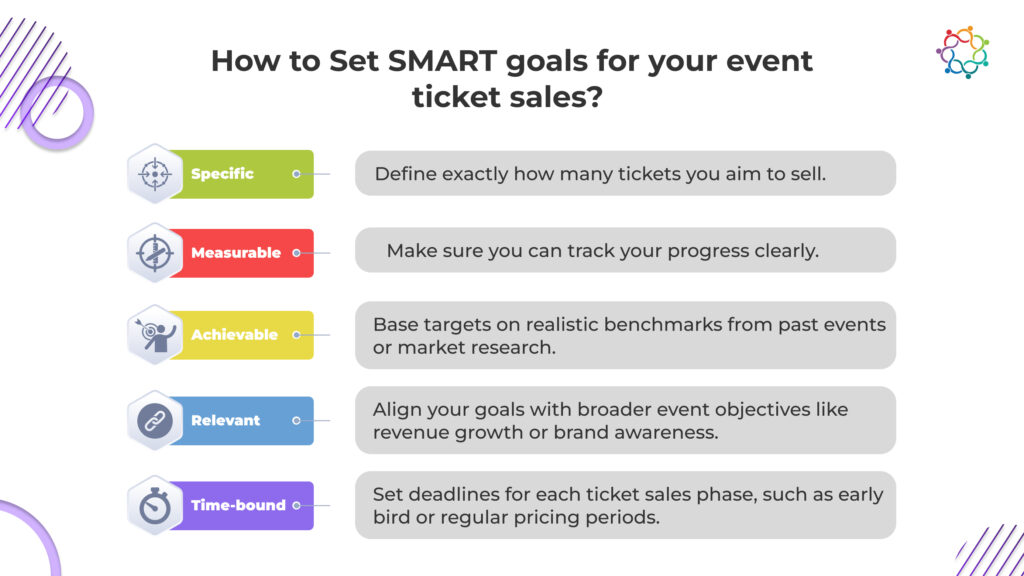
Establishing these essentials equips you with a clear roadmap, ensuring your event ticket sales strategies are purposeful and effective.
The period leading up to your event is arguably the most critical for ticket sales. This phase, often called the “critical window,” is when your marketing efforts directly influence your event’s success. Implementing smart, targeted strategies during this time can generate momentum and ensure a steady flow of ticket purchases.
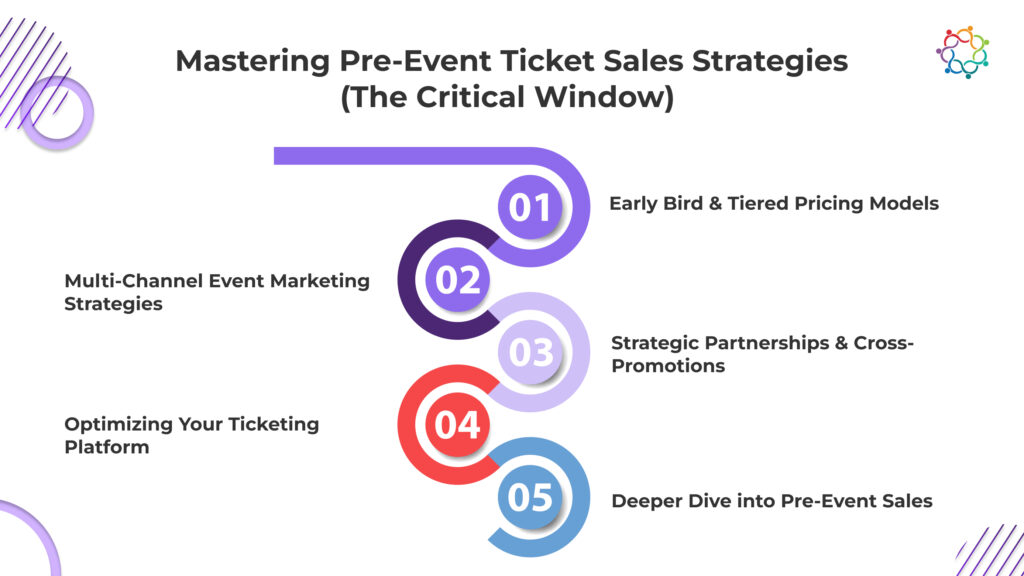
One of the most effective ways to incentivize early ticket purchases is through tiered pricing. Early bird offers reward attendees for committing early, while gradually increasing prices create urgency and capitalize on FOMO (Fear Of Missing Out). Here’s how to approach it:
This pricing strategy not only boosts initial sales but also helps predict attendance levels, aiding event planning.
Relying on a single channel won’t maximize ticket sales. Instead, use a combination of approaches tailored to your audience’s preferences:
Collaborating with complementary brands or influencers can broaden your reach exponentially. Consider:
Your ticketing platform is the backbone of your sales process. Prioritize:
By mastering these pre-event strategies during the critical window, you set the stage for strong ticket momentum and a sold-out event.
At this stage, your goal is to turn interest into action. Even with a compelling event and strong marketing, hesitation can stall ticket purchases. That’s where sales psychology comes in. By understanding how people make purchasing decisions, you can nudge prospects across the finish line.
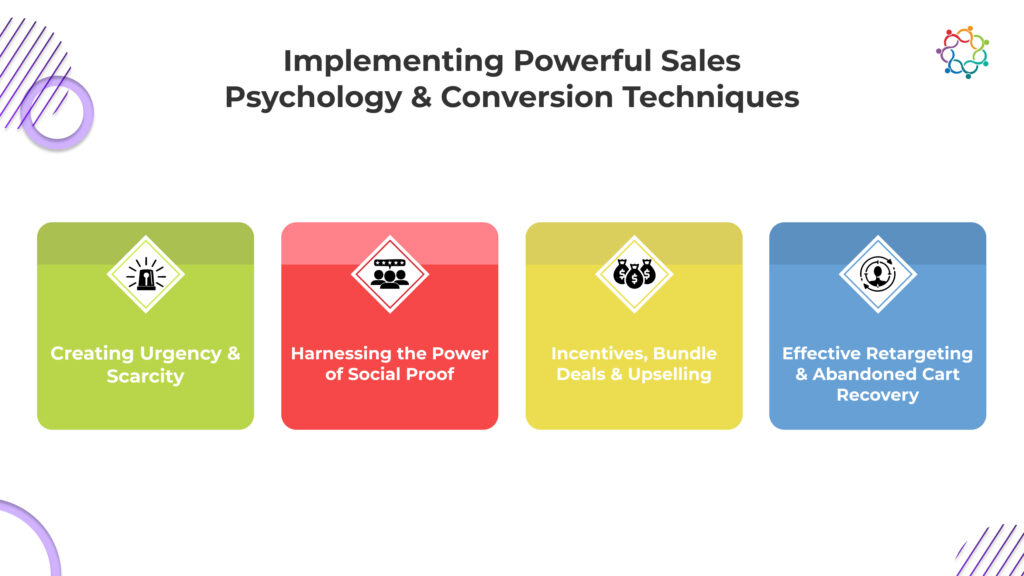
Nothing drives action like the fear of missing out. Leverage urgency and scarcity in ways that feel genuine, not gimmicky:
These tactics help overcome procrastination and trigger action.
Humans trust the crowd. Showing that others are attending, enjoying, or recommending your event can build trust instantly.
When potential attendees see others backing your event, their hesitation fades.
Value-adds can tip the scale for on-the-fence buyers. Don’t just sell tickets—sell experiences.
These techniques not only boost conversions but increase average revenue per ticket.
Many potential buyers won’t complete their ticket purchase the first time they visit your site. With smart retargeting, you can bring them back.
These psychology-backed techniques work best when layered together. Done right, they’ll help you convert curious visitors into committed attendees—faster and at higher value.
Pricing isn’t just about covering costs – it’s a strategic lever to influence buyer behavior, increase perceived value, and maximize event revenue. In 2025, smart pricing is dynamic, flexible, and data-informed.
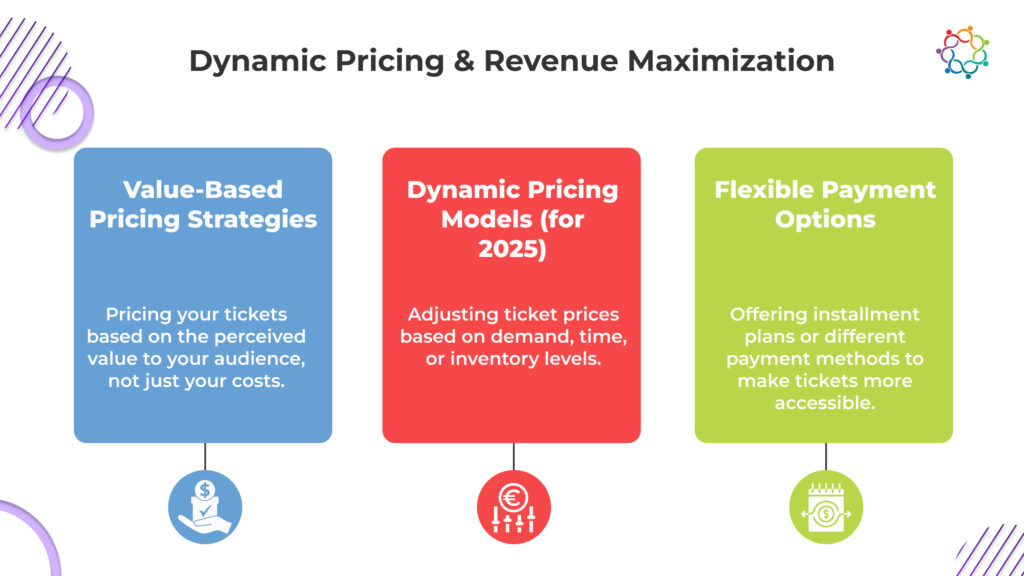
Instead of pricing based solely on what your event costs to produce, consider what it’s worth to your audience.
Modern ticketing allows you to adapt prices based on real-time conditions. Dynamic pricing can help you:
This model works especially well for multi-day events, large conferences, or tiered ticketing systems.
The easier it is for someone to say yes, the more likely they will. Flexible payments can unlock budget-sensitive buyers:
Not only do these options lower financial barriers, they also increase conversions for premium and group ticket types.
By combining value-based positioning with intelligent pricing models and accessible payment options, you give your audience more reasons to buy—and fewer reasons to hesitate.
A high-performing ticket sales strategy isn’t just about planning and promotion—it’s about iteration. The most successful event organizers use data to continuously refine their approach. This phase focuses on measuring what matters, uncovering actionable insights, and using them to drive long-term growth.
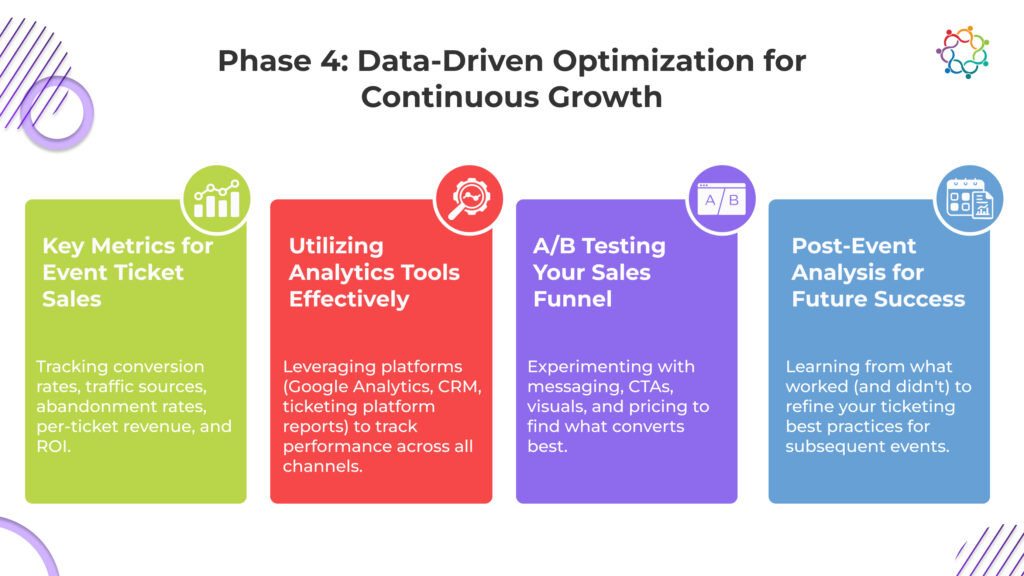
Understanding your performance begins with tracking the right metrics. These aren’t just numbers—they’re indicators of buyer behavior, marketing efficiency, and revenue health.
These benchmarks are essential to identify where you’re winning—and where there’s room to improve.
Collecting data is only half the battle. You need to analyze it meaningfully to optimize campaigns and make informed decisions.
Build custom dashboards to regularly review these insights and keep your team aligned.
Optimization isn’t guesswork—it’s experimentation. A/B testing allows you to identify which elements of your campaign directly influence performance.
Start with small-scale tests and apply learnings to broader campaigns. The key is to isolate one variable at a time for clear results.
Once the event is over, the real learning begins. A structured post-event analysis provides valuable insights you can apply to future ticketing campaigns.
Turn these findings into a reusable playbook. Over time, this iterative approach will help you develop a high-converting, scalable ticketing system.
With a strong foundation in data-driven decision-making, you can move beyond intuition and build repeatable ticket sales success.
Even the most meticulously planned events can hit roadblocks when it comes to ticket sales. Whether it’s market noise, pricing perception, or timing issues, every organizer encounters friction. The key is to anticipate these challenges and have strategic responses ready.
If your audience doesn’t know about your event, they can’t buy tickets—no matter how good your offering is.
Even when pricing is fair, it can be a barrier if the value isn’t communicated well enough.
Today’s attendees have multiple event options. To stand out, differentiation is crucial.
Many events experience a sales surge early on—and a panic-inducing drop mid-way before the final push.
These challenges are common—but not permanent. With the right adjustments and a data-backed approach, each obstacle becomes an opportunity to refine your ticket sales engine.
Staying ahead in event ticket sales isn’t just about refining current strategies—it’s also about anticipating what’s next. As we head deeper into 2025, several emerging trends are shaping how organizers attract, convert, and retain attendees.
Let’s explore the most important shifts to future-proof your ticketing strategy.
Generic outreach is fading fast. Today’s attendees expect relevance, and AI helps deliver it at scale.
Before buying a ticket, people want to feel the event. That’s where immersive content comes in.
People trust people. By activating communities, your attendees become your most powerful marketers.
Still evolving—but promising for transparency, security, and exclusivity.
In a post-pandemic world, buyers expect flexibility—and organizers who offer it win trust.
By integrating these trends into your sales strategy, you don’t just sell more tickets—you build future-ready events that resonate with modern attendees.
In the dynamic world of event planning, success isn’t defined by logistics alone—it’s defined by how many people show up. And in 2025, that means building a ticket sales strategy that is not only creative and compelling, but data-driven and audience-first.
Let’s recap the journey:
If there’s one truth about event ticket sales, it’s this: you can’t leave it to chance. Selling out isn’t about luck—it’s about the strategy you build long before your attendees ever arrive.
Implement these proven techniques to boost event revenue, drive more attendance, and build a repeatable, scalable ticket sales engine. Whether you’re planning a conference, festival, or corporate gathering—your roadmap is now in your hands.

Samaaro is an all-in-one event technology company that offers a comprehensive suite of event management solutions to help event organisers streamline operations, boost attendee engagement and maximise ROI of their events.
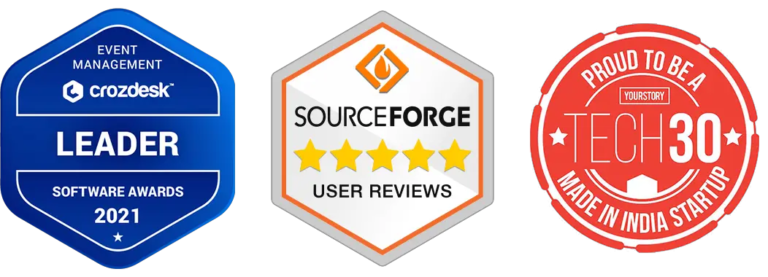

© 2025 — Samaaro. All Rights Reserved.